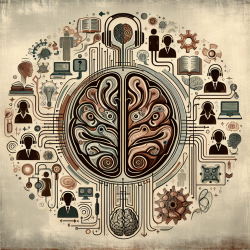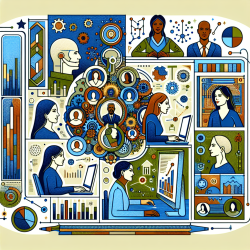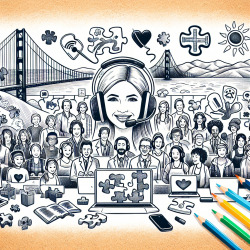The legacy of Lev Vygotsky, a pioneering figure in developmental psychology, continues to influence educational practices worldwide. His work emphasized the social context of learning and the importance of language in cognitive development. However, much of his original work remains inaccessible or inaccurately translated into English, posing a significant challenge for practitioners seeking to apply his theories effectively.
The Importance of Accurate Translations
One of the primary issues highlighted by René van der Veer and Anton Yasnitsky in their article "Vygotsky in English: What Still Needs to Be Done" is the need for accurate translations of Vygotsky's work. Many existing translations are based on Soviet editions that contain errors and omissions due to political censorship and editorial changes. These inaccuracies can lead to misunderstandings of Vygotsky's theories and hinder their application in educational settings.
Challenges Faced by Practitioners
- Misinterpretation: Practitioners may misinterpret Vygotsky's ideas due to flawed translations, leading to ineffective application in educational settings.
- Lack of Context: Without access to complete works, educators miss out on the rich context that informs Vygotsky's theories.
- Incomplete Understanding: Missing sections or altered texts can result in an incomplete understanding of key concepts like the Zone of Proximal Development (ZPD).
Encouraging Further Research
To address these challenges, it is crucial for practitioners to engage in further research and seek out reliable sources. This involves not only accessing more accurate translations but also understanding the cultural-historical context in which Vygotsky developed his theories.
Steps for Practitioners
- Seek Reliable Sources: Look for translations that are based on original manuscripts rather than Soviet editions. Collaborate with academic institutions that specialize in Vygotskian studies.
- Engage with Scholarly Work: Attend conferences and webinars that focus on cultural-historical theory and its applications in modern education.
- Collaborate with Peers: Join networks of educators and psychologists who are dedicated to exploring Vygotsky's work. Sharing insights can lead to a deeper understanding and innovative applications.
- Pursue Continued Education: Consider advanced courses or certifications that delve into developmental psychology and educational theory.
The Role of Technology in Advancing Understanding
The digital age offers new opportunities for accessing Vygotsky's work. Online repositories and academic databases provide access to original texts and scholarly articles. Practitioners can leverage these resources to deepen their understanding and refine their practice.
Utilizing Online Therapy Platforms
For those involved in online therapy services, such as those provided by TinyEYE, integrating Vygotskian principles can enhance therapeutic outcomes. Understanding the collaborative nature of learning and development can inform strategies that support students' cognitive growth through virtual interactions.
A Call to Action
The journey towards fully understanding and implementing Vygotsky's theories requires dedication and collaboration. By advocating for accurate translations and engaging with ongoing research, practitioners can ensure they are equipped with the knowledge needed to foster meaningful educational experiences.
To read the original research paper, please follow this link: Vygotsky in English: What Still Needs to Be Done










